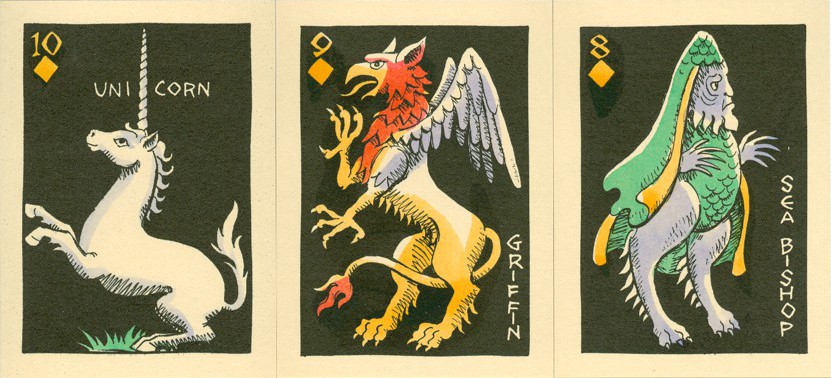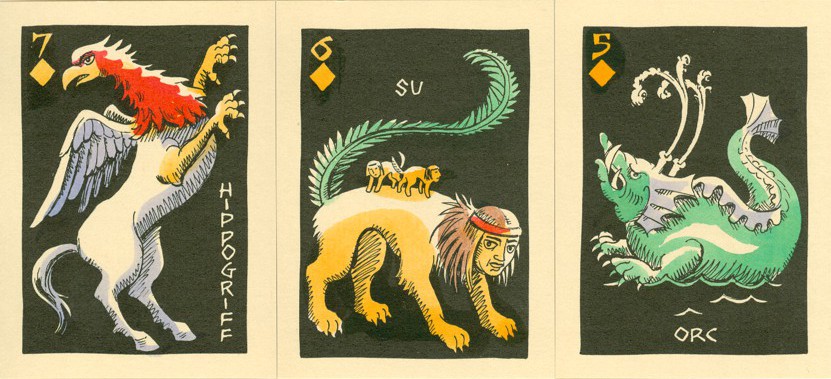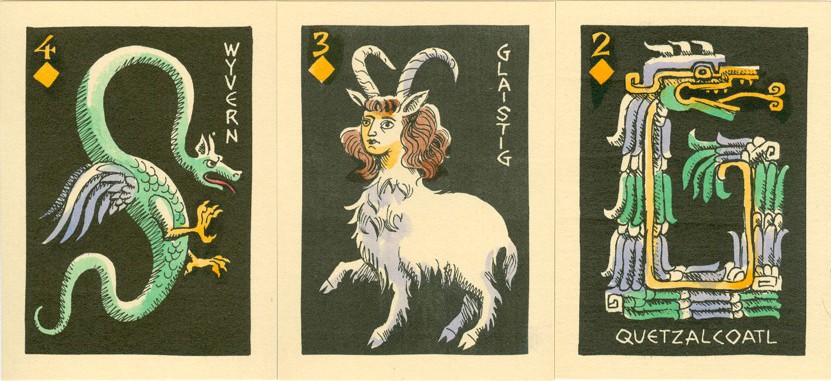 |
||
|
THE UNICORN - The "gentle noble beast" of Medieval legend. Although too fleet and powerful to be caught by men, he could be charmed and tamed by a beautiful maiden. His horn was a sure antidote for poison. |
THE GRIFFIN - Though this fierce composite of eagle and lion is known all over the world, he is most identified with European legend, and is an important figure in heraldry. |
THE SEA-BISHOP - There are many sworn accounts by European sailors describing this ugly, but harmless creature of the deep. |

